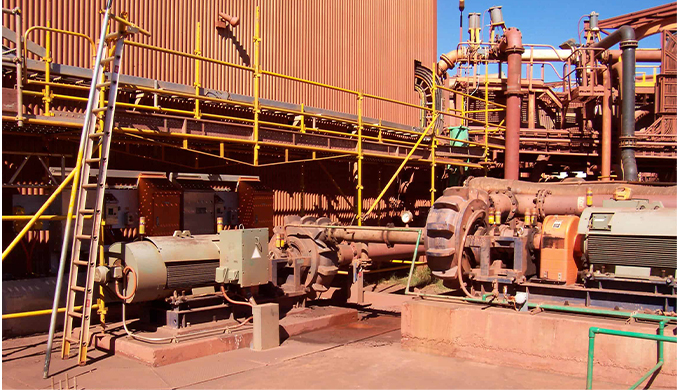English
- Afrikaans
- Albanian
- Amharic
- Arabic
- Armenian
- Azerbaijani
- Basque
- Belarusian
- Bengali
- Bosnian
- Bulgarian
- Catalan
- Cebuano
- Corsican
- Croatian
- Czech
- Danish
- Dutch
- English
- Esperanto
- Estonian
- Finnish
- French
- Frisian
- Galician
- Georgian
- German
- Greek
- Gujarati
- Haitian Creole
- hausa
- hawaiian
- Hebrew
- Hindi
- Miao
- Hungarian
- Icelandic
- igbo
- Indonesian
- irish
- Italian
- Japanese
- Javanese
- Kannada
- kazakh
- Khmer
- Rwandese
- Korean
- Kurdish
- Kyrgyz
- Lao
- Latin
- Latvian
- Lithuanian
- Luxembourgish
- Macedonian
- Malgashi
- Malay
- Malayalam
- Maltese
- Maori
- Marathi
- Mongolian
- Myanmar
- Nepali
- Norwegian
- Norwegian
- Occitan
- Pashto
- Persian
- Polish
- Portuguese
- Punjabi
- Romanian
- Russian
- Samoan
- Scottish Gaelic
- Serbian
- Sesotho
- Shona
- Sindhi
- Sinhala
- Slovak
- Slovenian
- Somali
- Spanish
- Sundanese
- Swahili
- Swedish
- Tagalog
- Tajik
- Tamil
- Tatar
- Telugu
- Thai
- Turkish
- Turkmen
- Ukrainian
- Urdu
- Uighur
- Uzbek
- Vietnamese
- Welsh
- Bantu
- Yiddish
- Yoruba
- Zulu
Telephone: +86 13120555503
Email: frank@cypump.com
Nov . 27, 2024 18:46 Back to list
Understanding the Mechanics of Mixed Flow Pumps Through Animation Efforts
Understanding Mixed Flow Pumps An Animated Exploration
In the world of fluid dynamics, mixed flow pumps play a crucial role in efficiently transporting liquids across various industrial applications. These pumps blend features of both axial and centrifugal impellers, allowing them to handle a wide range of flow rates and pressures. To delve deeper into the workings of mixed flow pumps, animations provide a visual and engaging way to comprehend their mechanics and benefits.
What Are Mixed Flow Pumps?
Mixed flow pumps are a type of hydraulic machine that combines elements of centrifugal and axial flow pumps. They are primarily used in applications where the fluid needs to be moved with moderate pressure and higher flow rates. Common uses include irrigation systems, water supply, sewage treatment, and cooling systems in power plants. The design of these pumps enables them to efficiently lift water at a relatively high flow rate while maintaining performance at various operating conditions.
The Anatomy of Mixed Flow Pumps
In animations depicting mixed flow pumps, we can observe several key components, including the volute casing, the impeller, and the diffuser. The impeller, often designed with curved blades, is responsible for imparting velocity to the fluid. When the pump operates, the impeller rotates, drawing liquid into the eye of the pump and accelerating it outwards due to centrifugal force. This outward motion creates a low-pressure area, allowing more liquid to enter the impeller.
As the fluid leaves the impeller, it enters the diffuser section of the pump. Here, the kinetic energy generated by the impeller is converted into pressure energy, allowing the fluid to be discharged at a higher pressure than at its inlet. The combination of axial and centrifugal flow characteristics in this design results in efficient performance over a range of system conditions.
mixed flow pump animation

Benefits of Mixed Flow Pumps
Animations effectively highlight the benefits of mixed flow pumps. Their ability to achieve high flow rates with moderate pressure makes them ideal for applications where large volumes of liquid need to be moved without excessive energy consumption. Additionally, mixed flow pumps demonstrate excellent efficiency, often leading to lower operational costs and reduced wear and tear on mechanical components.
One notable feature illustrated in animations is the pump’s adaptability. Mixed flow pumps can handle liquids with varying viscosities and densities, making them versatile across different industries. This flexibility allows for seamless integration into processes ranging from municipal water supply to industrial applications requiring the movement of various types of fluids.
Conclusion
As we explore the world of mixed flow pumps through animation, we gain a clearer understanding of their operational principles, design elements, and the critical role they play in modern engineering. Their unique combination of axial and centrifugal action enables them to meet diverse pumping needs efficiently. Whether used in everyday applications or specialized industrial processes, mixed flow pumps remain an invaluable asset in the fluid management toolkit.
In conclusion, the animation of mixed flow pumps serves not only as a learning tool but also as a window into the intricacies of fluid dynamics. By visualizing how these pumps operate, we can better appreciate their efficiency and adaptability in various applications, solidifying their importance in the ever-evolving landscape of engineering and industrial systems.
-
Horizontal Split Case Pump with GPT-4 Turbo | High Efficiency
NewsAug.01,2025
-
ISG Series Pipeline Pump - Chi Yuan Pumps | High Efficiency, Durable Design
NewsAug.01,2025
-
Advanced Flue Gas Desulfurization Pump with GPT-4 Turbo | Durable & Efficient
NewsJul.31,2025
-
ISG Series Vertical Pipeline Pump - Chi Yuan Pumps | Advanced Hydraulic Design&Durable Construction
NewsJul.31,2025
-
ISG Series Vertical Pipeline Pump - Chi Yuan Pumps | Energy Efficient & Low Noise
NewsJul.31,2025
-
pipeline pump - Chi Yuan Pumps Co., LTD.|High Efficiency&Low Noise
NewsJul.31,2025










